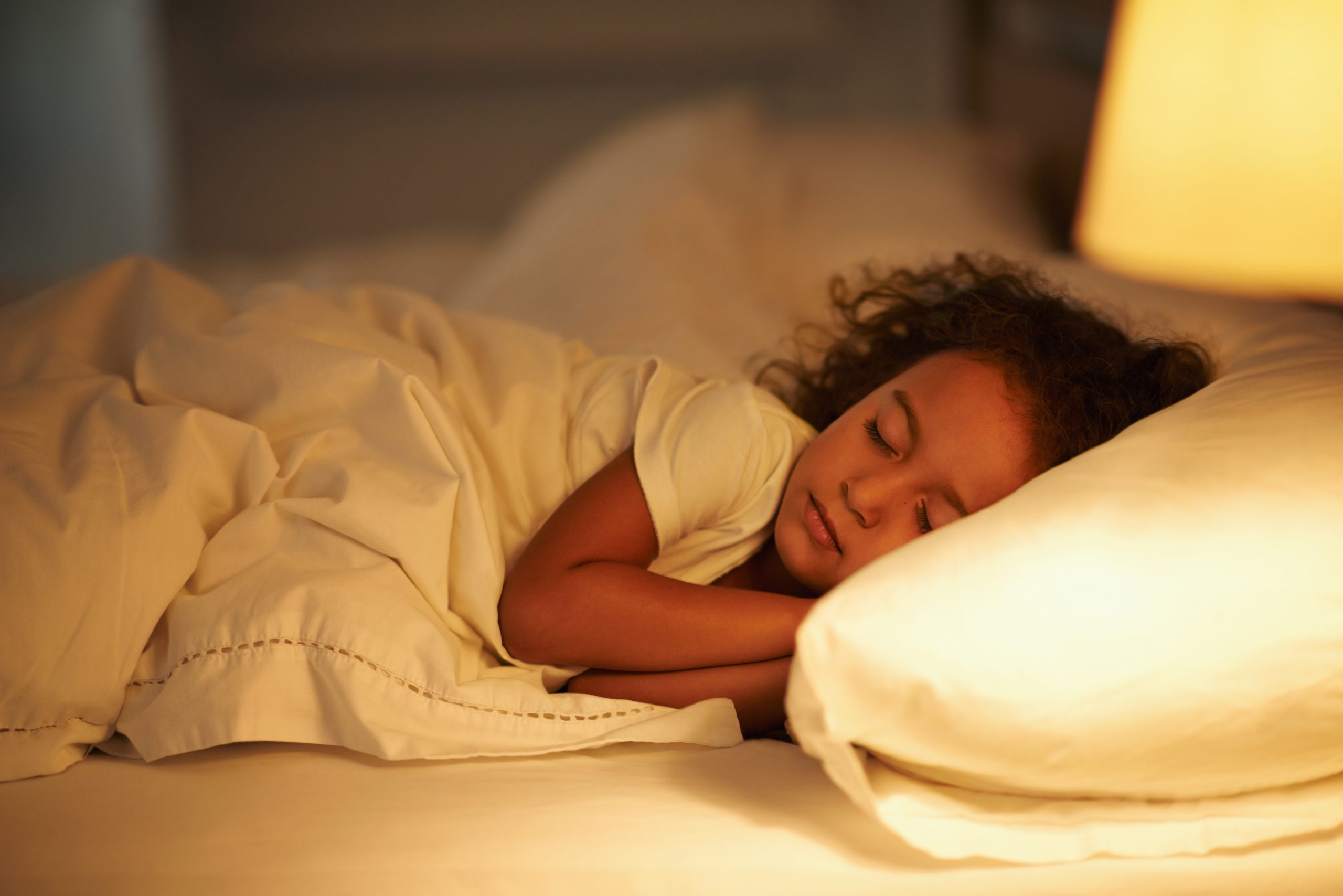Getting a child or teen to go to sleep can be hard. There are so many reasons why – distractions, like phones, YouTube and gaming, or maybe it’s simply a child not wanting to go to bed due to fear of missing out on family fun. Whatever the reason, bed time conflicts between parents and kids can be a significant stress on families.
The best first steps to prevent this stress is to create a sleep routine, make sure the environment is comfortable for sleep and that food and drinks are considered.
Create a routine

Your child should have the same bedtime and wake time during both the weeknights and weekends. This gives them a consistent routine and their bodies will be trained to automatically get tired around the same time every day.
Make sure that the routine:
- Isn’t too complicated
- Doesn’t take too much time
- It can be moved from your home to other locations (like during vacations or when visiting grandparents).
A healthy sleep schedule will vary depending on your child’s age and needs. Here are the hours you are aiming for each night:
- Newborns (0-3 months) require 14-17 hours of sleep
- Infants (4-11 months) require 12-15 hours of sleep
- Toddlers (1-2) require 11-14 hours of sleep
- Preschoolers (3-5) require 10-13 hours of sleep
- Children (6-12) require 9-11 hours of sleep
- Teens (13-18) require 8-10 hours of sleep
Find more tips on creating a healthy sleeping schedule here.

Environment
One aspect that should be considered is the use of screens. Not only are bright screens sending a signal to the brain that it is morning, they are also exciting and stimulating. To prepare for bedtime, it is recommended that all electronic devices be turned off at least 60 minutes before bedtime.
Bodily needs
Often times, kids sleep better with a bit of a snack, especially with protein before bed. Be cautious of how much fluids kids are drinking before bedtime and kids under the age of 12 shouldn’t be consuming caffeinated beverages.
When a sleep routine, supportive sleep environment and check of bodily needs don’t seem to help with getting kids to sleep, then what about melatonin?
What is melatonin?
According to the American Academy of Sleep Medicine (AASM), “Melatonin is a natural hormone that helps us regulate our own sleep timing. Even though our body makes its melatonin in the brain, some people use extra melatonin to improve their sleep.”
Should kids be taking melatonin?
Melatonin has become a staple in so many households to help kids and teens fall asleep. However, it is still important to be cautious when giving it to children or even just having it around the house.
Although melatonin comes in many forms, such as tablets, capsules, liquid and now that it is available in gummy form with attractive packaging to children, concerns of accidental overdose become real possibilities too. According to the Centers for Disease Control and Prevention (CDC), melatonin ingestions among kids have increased 530% from 2012 to 2021.
The CDC also found that poison control centers across the United States received over 250,000 reports of kids ingesting melatonin and 94% of those were accidental. Of the patients that had to seek care at a health care facility, 14% of them were hospitalized and 1% required intensive care.
If you have melatonin supplements in the house, make sure they are out of reach to avoid your kids accidentally finding and taking them.
Every child will require different methods for regulating sleep, but the majority of kids and teens just need a good and healthy sleep routine.
Listen to the Talking Pediatrics episode on melatonin
On this Talking Pediatrics episode, our kid expert from the Sleep Clinic, Dr. Ben Ryba-White, joins us to talk about the importance of sleep, the mysteries of melatonin and what providers can be doing in the primary care office to help improve the sleep habits of our young patients.